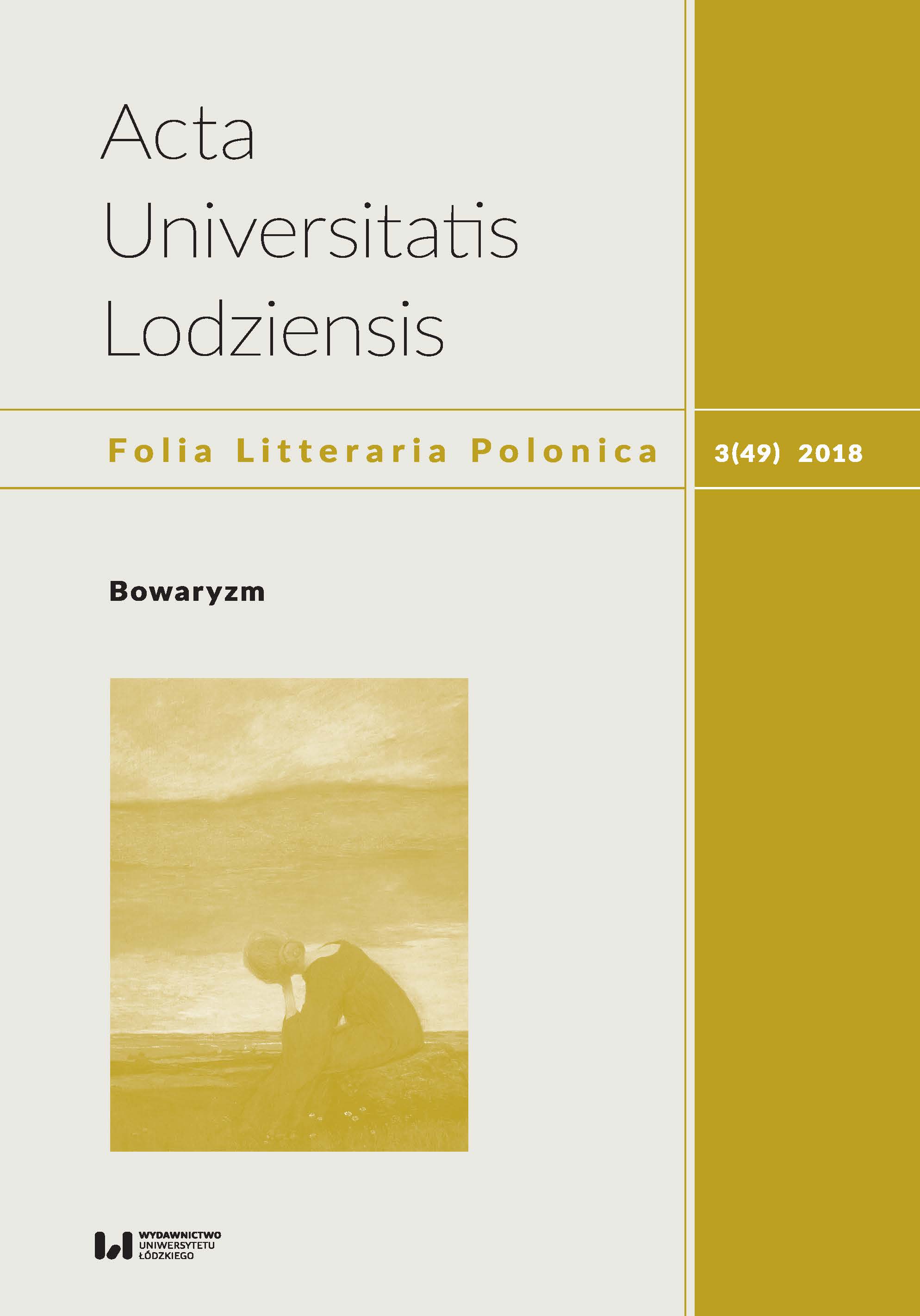Potęga niemocy, czyli bowaryzm ułomny w Dworze w Ulloa Emilii Pardo Bazán
The power of impotence: deficient bovarism in The House of Ulloa by Emilia Pardo Bazán
Author(s): Marcin KołakowskiSubject(s): Studies of Literature, Theory of Literature
Published by: Wydawnictwo Uniwersytetu Łódzkiego
Keywords: The House of Ulloa; Emilia Pardo Bazán; bovarysme; 19th century Spanish narrative; aboulia
Summary/Abstract: The House of Ulloa (1886) is considered the most significant work of Emilia Pardo Bazan, who is said to have introduced Zola’s naturalism into the Spanish narrative. Although some of its characters show direct affinity with the bovarist psychological model (dreaminess, disappointment with reality, and unrealistic expectations), this particular aspect of the novel – a masterpiece of the 19th century Spanish literature – has not yet been researched, even within the Spanish-speaking literary criticism. The comparatist perspective of the present study required a closer look at some elements of the diegesis: space, customs represented by the secondary characters and the inner world of the main characters. The primary aims of the paper are to juxtapose Flaubert’s mentality models with those in The House of Ulloa, consider the specificity of the bovarist model as shown in the classic as well as to demonstrate that this peculiar take on the Emma Bovary syndrome enriches the symbolic dimension of the novel and represents the symptomatic state of mind of the Spanish at the end of the 19th century.
Journal: Acta Universitatis Lodziensis. Folia Litteraria Polonica
- Issue Year: 49/2018
- Issue No: 3
- Page Range: 101-122
- Page Count: 22
- Language: Polish

